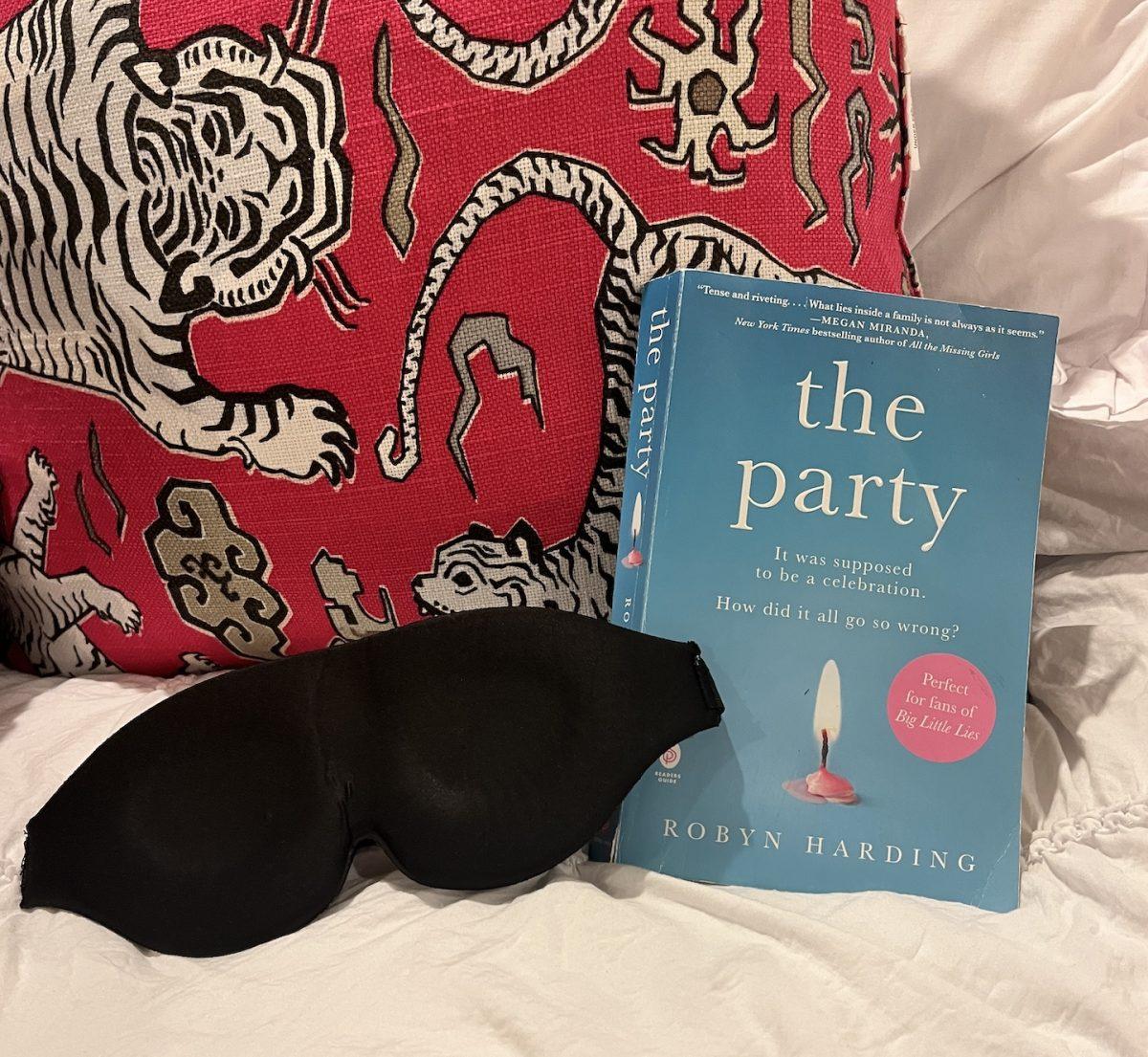Anytime someone asks me, “When’s the last time you read a book?” I answer, “Pretty soon!”
I’m not a reader. I always make an excuse. Either I’m too tired, I have too much homework or I have to read for school.
But, for one week, I decided I would try to read for at least 20 to 30 minutes before I went to bed. Normally, I spend this time on my phone.
But at 9 p.m. one Tuesday last semester, I opened a brand new book called “The Party” by Robyn Harding that had been sitting on my nightstand all semester collecting dust, and started reading. This book is a fiction thriller that grabs your attention on the first page.
After about 35 minutes of reading, I found myself becoming tired and ready for bed. I noticed my head didn’t hurt as much as it usually does when I put my phone down for bed.
Joseph McCleery, Ph.D., assistant professor of psychology, said he recommends reading in a location other than bed.
“I would recommend reading in a different area, not reading in your bed because you want to train yourself that that’s the location that you sleep,” McCleery said.
Fair advice, but at least I was reading, as McCleery also agreed.
One night during my experiment, my roommate and I were hanging out, scrolling through TikTok, lying on our phones with the blue light shining right into our eyes. It was 10:30 p.m., which McCleery said was a recipe for trouble.
Dr. Lara Bruneau, a family medicine physician based in Mount Laurel, New Jersey, also explained blue light shining in the eyes before bed can impact sleep.
“We know that the blue light makes it like it’s the sun, so that affects your brain,” Bruneau said. “It tells you that it’s daylight and tells you it’s not time to go to sleep. So instead of going to bed, it tells you it’s time to wake up and it tricks your brain into keeping you awake at night…it triggers circadian rhythm, so now it’s daytime.”
McCleery said there are other problems caused by phone use before bed.
“The biggest problem with the phones is that it can have emotional arousal or social arousal, or it can make you worry about things that are going to happen the next day because you’re doing social media or you’re checking your work email,” McCleery said. “They make you continue to be in your day whereas reading, or lots of other activities, could help you to pull yourself out of that and start to focus on other things.”
Towards the end of the week, which felt like an eternity, my roommate, Ava Semet ’25, turned to me and said, “You know what, I’m going to start reading my book. It’s been sitting here since August.”
We both sat in silence as we read our books for about 25 minutes. I was now about 65 pages into this book, proud of myself for making a dent.
Bruneau said forcing myself to read before bed was a good way to practice setting boundaries and not going on my phone as often.
Dr. Frank Iula, an anesthesiologist based in South Jersey, said he is also intentional about implementing healthy habits in his routine.
“I stay off my devices and I will read and or maybe watch the news for a little bit and then read afterward,” Iula said. “Also, I try not to drink any caffeine in the afternoon, so I do have a little bit of things that I do, and staying off the devices is one.”
Several days later, I hit 100 pages, and was really enjoying the suspense and drama building up in my book. Although my roommate constantly wanted to start a conversation while I was reading, I found myself tuning her out, as I could not put this book down.
The best ending of all was how rewarding it felt to follow through with my goal.















































